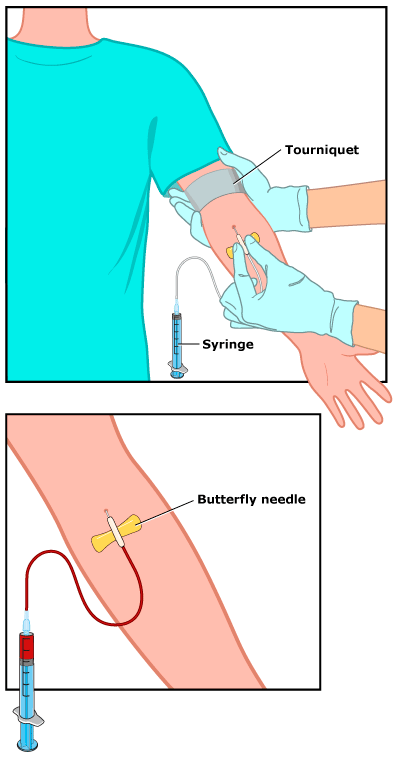Blood Test: Thyroglobulin Antibodies (TgAb)
Article Translations: (Spanish)
What It Is
A thyroglobulin antibodies (TgAb) test is used to check blood levels of antibodies the body has made against the compound thyroglobulin. Thyroglobulin is a protein produced and used by the thyroid gland (the small, butterfly-shaped gland in the neck) to make the hormones triiodothyronine (T3) and thyroxine (T4), both of which help control metabolism and growth.
Ordinarily, a healthy immune system wouldn't make significant levels of antibodies against thyroglobulin, because it's not "foreign," but rather a necessary component of thyroid functioning.
Antibodies are proteins made by the immune system to fight bacteria, viruses, and toxins.
In autoimmune diseases, however, the immune system malfunctions, mistakenly attacking healthy organs and tissues as though they were foreign invaders. In people with certain thyroid-related autoimmune conditions, the blood level of thyroglobulin antibodies may rise.
Why It's Done
The thyroglobulin antibodies test is used primarily to help diagnose autoimmune conditions involving the thyroid gland. The test may be ordered when a child has symptoms of a thyroid disorder, including thyroiditis (inflammation of the thyroid) or goiter (an enlarged thyroid), or if tests to check blood levels of T3, T4, or thyroid stimulating hormone (TSH) showed abnormalities.
Preparation
No special preparations are needed for this test. On the day of the test, having your child wear a T-shirt or short-sleeved shirt can make things easier for your child and the technician who will be drawing the blood.
The Procedure
A health professional will draw the blood from a vein, after cleaning the skin surface with antiseptic, and placing an elastic band (tourniquet) around the upper arm to apply pressure and cause the veins to swell with blood. A needle is inserted into a vein (usually in the arm inside of the elbow or on the back of the hand) and blood is withdrawn and collected in a vial or syringe.
After the procedure, the elastic band is removed. Once the blood has been collected, the needle is removed and the area is covered with cotton or a bandage to stop the bleeding. Collecting the blood for the test will only take a few minutes.

What to Expect
Collecting a sample of blood for this test is only temporarily uncomfortable and can feel like a quick pinprick. Afterward, there may be some mild bruising, which should go away in a few days.
Getting the Results
The blood sample will be processed by a machine, and results are commonly available after a few days.
Risks
The thyroglobulin antibodies test is considered a safe procedure. However, as with many medical tests, some problems can occur with having blood drawn, such as:
- fainting or feeling lightheaded
- hematoma (blood accumulating under the skin causing a lump or bruise)
- pain associated with multiple punctures to locate a vein
Helping Your Child
Having a blood test is relatively painless. Still, many children are afraid of needles. Explaining the test in terms your child can understand might help ease some of the fear.
Allow your child to ask the technician any questions he or she might have. Tell your child to try to relax and stay still during the procedure, as tensing muscles and moving can make it harder and more painful to draw blood. It also may help if your child looks away when the needle is being inserted into the skin.
If You Have Questions
If you have questions about the thyroglobulin antibodies test, speak with your doctor.
Note: All information is for educational purposes only. For specific medical advice, diagnoses, and treatment, consult your doctor.
© 1995-2024 KidsHealth ® All rights reserved. Images provided by iStock, Getty Images, Corbis, Veer, Science Photo Library, Science Source Images, Shutterstock, and Clipart.com

